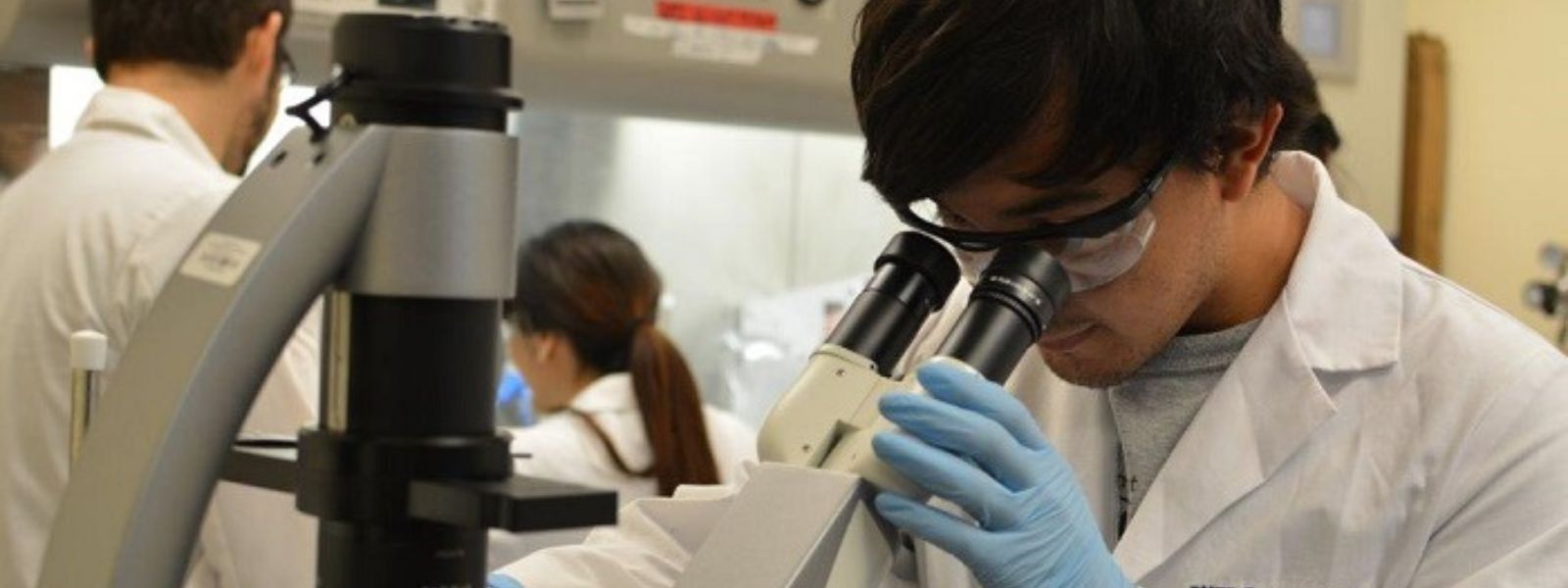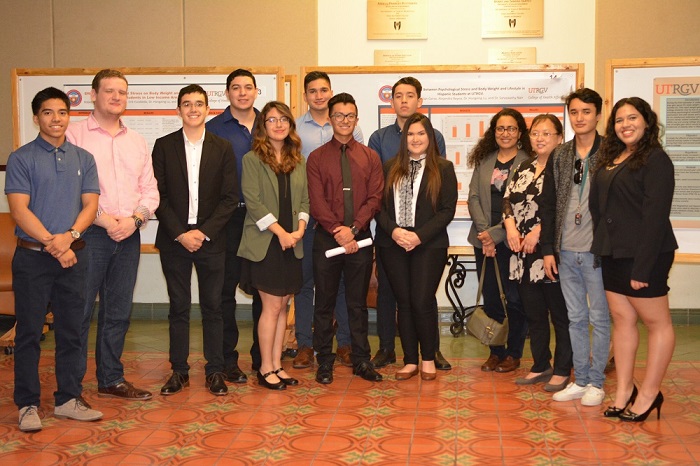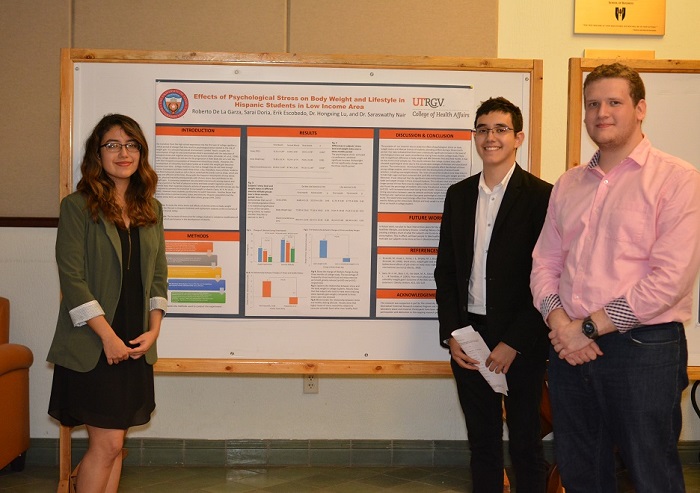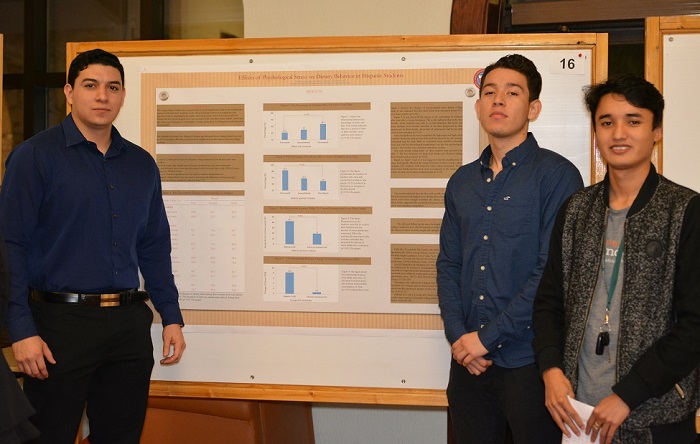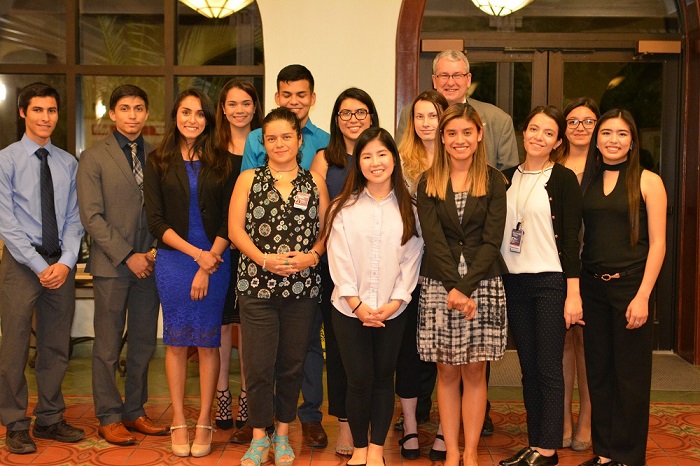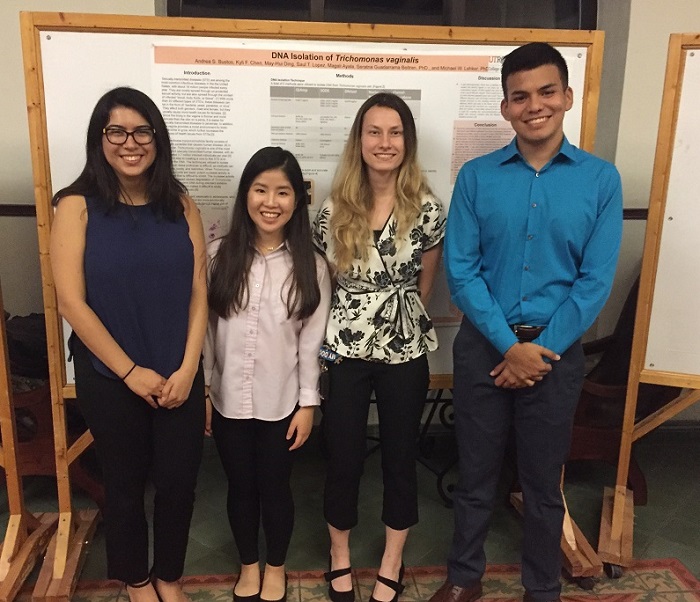Enjoy finding answers to questions?
Ever wonder what it is like to be a scientist?
Enjoy discovering new things?
Interested in the opportunity to contribute to scientific knowledge?
If you answered “Yes,” BFRI might be right for you!
please register for one of the following courses below:
Independent Research I - 22743 - BMED 3121 - 1BR
Independent Research I - 22746 - BMED 3121 - 2BR
What is BFRI?
Biomedical Freshman Research Initiative (BFRI) is an undergraduate research initiative program that is opened to students in the Biomedical Science (BMED) Bachelor’s program. By taking the BFRI track, you will have the opportunity to be exposed to and engage in research beginning as a first-year BMED student. You will have the opportunity to:
- learn through inquiry-based learning
- learn how to design and execute a research project
- obtain laboratory technique training
- work on a scientific research project
- while getting credit for BMED courses
Why Join BFRI?
- Develop critical thinking skills
- Develop better study habits including team-work
- Obtain hands on application based training: increases knowledge and passion for learning
- Serves as preparation for future research opportunity in a research lab
- May co-author scientific publications
- Better preparation for medical or graduate school and a career as a physician, scientist or physician-scientist
- Strengthen chances of getting accepted to medical or graduate schools
- Become aware of alternative careers
- Have the opportunity to determine if a career in research is suitable for you
| Semester | BFRI Course | BMED Course Credit | Number of Credit Hours |
| Freshman Fall | Research Methods |
Independent Research I
(BMED 3121) |
1
|
| Freshman Spring | Research Techniques |
Independent Research II
(BMED 3122) |
1
|
| Sophomore Fall | Research Experience I |
Independent Research III
(BMED 3123) |
1 |
| Sophomore Spring | Research Experience II |
Independent Research VI
(BMED 3124)
|
1 |

BFRI begins in the first semester of your freshman year (Freshman Fall semester), where you will take a “Research Methods” course. This course consists of classroom lectures and activities geared to teach you the scientific process and the different aspects of research such as:
- Scientific literature review
- Formulation of a hypothesis
- Experimental design
- Data acquisition and analysis
- Dissemination of findings
You will be taught through inquiry-based learning and a large component of the course is the design and execution of three inquiry-based experiments throughout the semester which are completed individually or in a group. Included in these inquiries are a written proposal, a written report and an oral presentation of your findings. During this first semester of BFRI, you will also be taught basic lab techniques and allowed to use the student laboratory for your inquiry experiments.
During the second semester of BFRI (Freshman Spring semester), you will be enrolled in a “Research Techniques” course where you will be trained to perform laboratory techniques that you may apply in biomedical science research such as:
- PCR and gel electrophoresis
- Immunoblotting
- Aseptic cell culture techniques
- Cell cycle analysis
- Histology
Research Experience I
In the third semester of BFRI (Sophomore Fall semester), you will be divided into research streams in a “Research Experience I” course. The research streams will be overseen by a faculty member (stream faculty mentor) from the Department of Health and Biomedical Sciences or other departments and run by a BFRI instructor. The streams will be based on the research field that is connected to the faculty’s research interest and expertise. In the stream, you will be conducting independent but parallel research projects that have the potential to lead to publishable work.
In this course, depending on your stream, you will:
- learn the background of your research project through scientific literature review
- be trained in the techniques required for your project
- prepare a written and/or oral proposal for your project
- perform the experiments required for your project
- prepare a written and/or oral report on your findings
Depending on the stream that you are in, you may apply techniques learned in the second semester of BFRI (“Research Techniques” course) and be trained in new techniques. You will be trained to develop problem solving and critical thinking skills as you make progress in your project which may be done individually or as a group, depending on the stream.
Research Experience II
In the fourth semester of BFRI (Sophomore Spring semester), you will continue in the same research stream and will be enrolled in a “Research Experience II” course. You will continue to expand on your project, applying techniques that you have already learned previously or new techniques which you will be trained in during this semester. In this course, you will be expected to have a higher degree of independence and responsibility, and thus, requiring less supervision.
Beyond BFRI…
After completing the four semesters of BFRI, based on your interest and/or recommendation of the BFRI mentors and instructors, you may apply to continue research in a faculty laboratory. You may also approach faculty to join their laboratory before completing the four BFRI courses.
Difference between the BMED course sequence for BFRI and Non-BFRI students
All BMED students are required to take BMED 3121, 3122, 3123 and 3124 for their degree. However, depending on if you are a BFRI or Non-BFRI student, you will take the 4 courses below at a certain semester during your BMED degree as shown in the table below.
| BMED Course | BFRI Students | Non-BFRI Students |
| BMED 3121 | Freshman Fall semester | Sophomore Fall semester |
| BMED 3122 | Freshman Spring semester | Sophomore Spring semester |
| BMED 3123 | Sophomore Fall semester | Junior Fall semester |
| BMED 3124 | Sophomore Spring semester | Junior Spring semester |
Research Stream Mentor/ PI: Dr. Michael Lehker (Department of Health and Biomedical Sciences)
Research Stream Instructor: Magali Ayala, Dr. Seratna Guadarrama
Title: Identification of Differentially Expressed Genes in the Human Parasite Trichomonas vaginalis
Dr. Lehker's research stream description
Research Stream Mentor/PI: Dr. Karen Martirosyan (Department of Physics)
Research Stream Instructor: Ivan Davila
Title: Determining the Biocidal Properties of Antimicrobial Nanoparticles
Dr. Martirosyan’s research stream description
Research Stream Mentor/ PI: Dr. Saraswathy Nair (Department of Health and Biomedical Sciences)
Research Stream Instructor: Dr. Hongxing Lu
Title: Determining the Importance of the Role of Stress Management in Improving Health Outcomes

